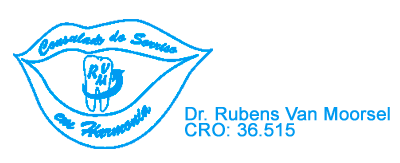Many other treatments are available, including less addictive pain medicines and therapies that don’t involve medicines. If possible, aim for a treatment plan that allows you to enjoy your life without opioids. Instead, healthcare providers rely on a thorough evaluation of your medical history and behaviors surrounding opioid use. They may order drug tests and evaluate prescription drug monitoring program reports. Motivation is the most important psychological predictor of effective treatment for opioid addiction. If someone is not motivated to quit opioids, they are at a high risk of relapse which in turn puts them at greater risk of death by overdose.
However, hypnotherapy is a poorly understood therapy and can be controversial. In addition, its research base for efficacy in addictions is much less than for other established treatments. If you want to try the method, find a therapist who is qualified in hypnotherapy.
Evidence-Based Addiction Treatment
It’s important to seek help as soon as possible if you think you’re developing a dependence on opioids. Evidence-based approaches to treating opioid use disorder include medications and combining medications with behavioral therapy. A recovery plan that includes medication for opioid addiction increases the chance of success. If you’re taking opioids and you’ve built up a tolerance, ask your healthcare professional for help.
Immediate action is needed to help someone experiencing an opioid overdose. Naloxone (commonly known by the brand name Narcan®) is a drug that treats the overdose immediately. Naloxone can reverse the effects of an opioid overdose if it’s given to the person quickly. Medical attention is still urgently needed after the administration of naloxone. CBT can also help manage other co-occurring mental health conditions a person with OUD may have. Having certain physical health conditions, such as chronic pain, can increase people’s use of opioids and the eventual development of OUD.
Mayo Clinic Press
There are many other types of psychotherapies that benefit people with OUD. Seeking medical care as soon as you have signs and symptoms of OUD is essential. Hypnotherapy uses hypnosis to help people access mental states ethically and responsibly. It’s not like stage hypnosis, which uses a volunteer’s suggestible mental state to entertain an audience. However, groups can also be supportive, safe spaces for people in recovery.
Treatment options
- The implant slowly releases medication and needs to be replaced every six months.
- In the last few decades, psychological treatments have become more sophisticated.
- It may help to get an independent perspective from someone you trust and who knows you well.
- You may have a strong desire to continue using opioids to continue the feeling.
- When considering addiction treatment, it’s crucial to establish that it’s evidence-based, which means that the treatment has been studied and shown to be effective for many people with the condition.
- Opioid use disorder is a chronic and treatable mental health condition that involves a problematic pattern of opioid misuse.
If you’re currently taking prescription opioids and are concerned you may be developing a use disorder, talk to your healthcare provider immediately. Opioids can lead to physical dependence within a short time — as little as four to eight weeks. People who use opioids for a long period of time can actually experience worse nida principles of effective treatment chronic pain because of the long-term toxic effects of opioids on pain signaling in their bodies. Approximately 3% to 19% of people who take prescription opioid medications develop OUD.
What is opioid use disorder?
There are many factors that can guide a healthcare professional to find the best individual treatment plan. It is important to tailor a plan to the individual’s beliefs and to medical science. Couples counseling (sometimes called couples or marital therapy) can be an important part of a treatment plan for someone with a substance use disorder, including opioid addiction. Cognitive-behavioral therapy (CBT) is one of the most effective treatments for opioid use disorder. It’s also a highly effective treatment for other psychological disorders, including anxiety disorders, depression, and trauma—all of which can co-occur with opioid addiction.
Preventing overdose death and finding treatment options are the first steps to recovery. Treatment may save a life and can help people struggling with opioid use disorder get their lives back on track by allowing them why do alcoholics get red noses to counteract addiction’s powerful effects on their brain and behavior. The overall goal of treatment is to help people regain their health and social function. Treatment may save a life and can help people struggling with opioid use disorder get their lives back on track.
If you need rebuilding your life after addiction opioids for severe pain, work with your healthcare professional to take the lowest dose possible, for the shortest time needed, exactly as prescribed. Also, be sure to ask if drugs other than opioids are available or if other types of treatment can be used instead. Opioid use disorder is a chronic and treatable mental health condition that involves a problematic pattern of opioid misuse. Effective treatment is possible and typically involves medication and cognitive and behavioral therapy.

Write a comment: